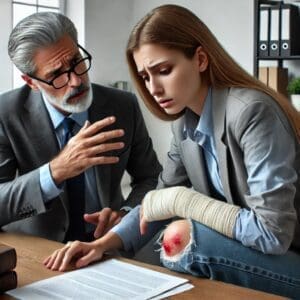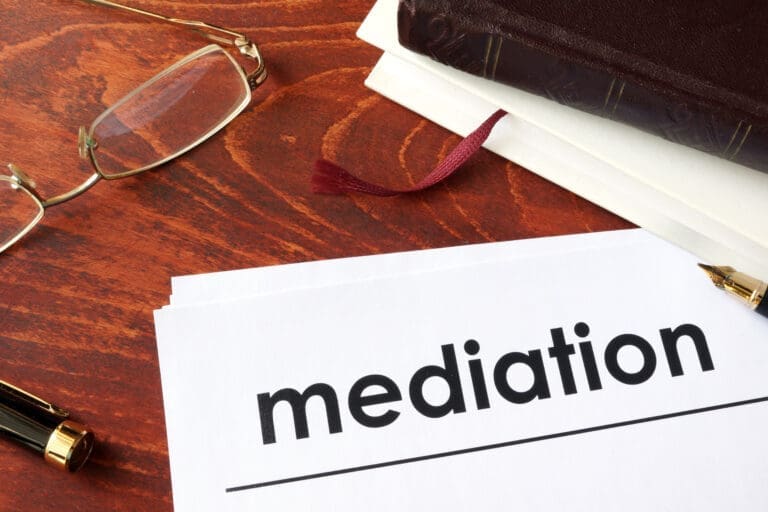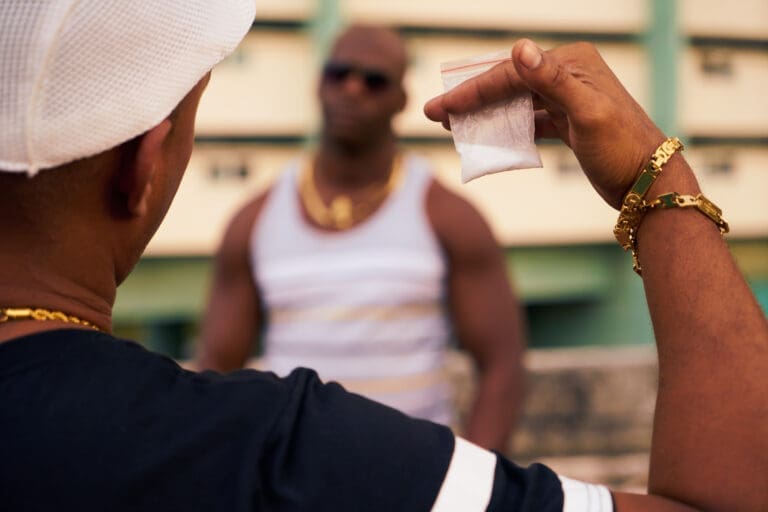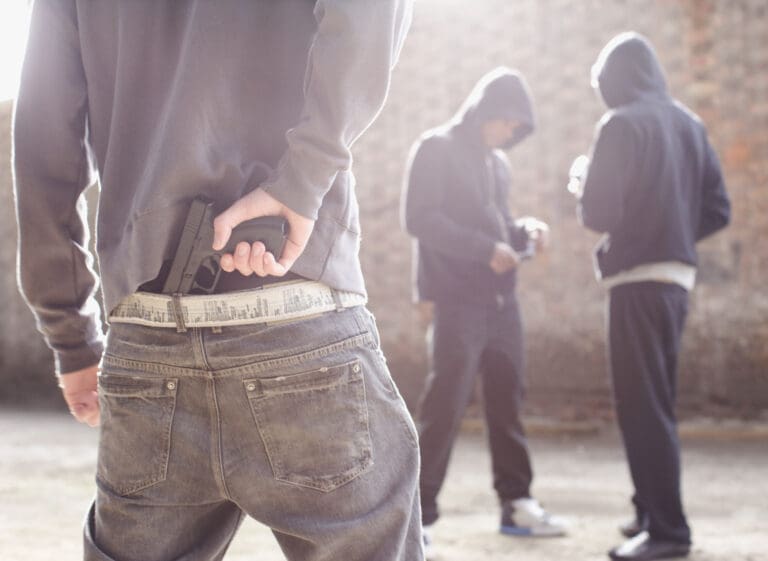
Experimentar una slip and fall accident can be both physically and emotionally distressing. The legal implications and potential for compensation can become complex, particularly if you were partially at fault for the incident. Understanding your derechos legales y cómo un slip and fall lawyer can assist you in these situations is crucial for navigating your claim successfully. This article will delve into various aspects of slip and fall cases, including the nuances of culpa comparativaEl papel de representación legal, and strategies for maximizing your compensation despite partial fault.
Understanding Slip and Fall Accidents
Slip and fall accidents occur when an individual slips, trips, or falls due to hazardous conditions on someone else’s property. Common causes include wet floors, uneven surfaces, poor lighting, or obstacles left in walkways. These accidents can lead to serious injuries such as fractures, sprains, and head trauma. The immediate aftermath of a slip and fall can be overwhelming, but taking the right steps early on can significantly impact your ability to claim compensation.
The Role of Comparative Fault in Slip and Fall Cases
In many jurisdictions, the concept of comparative fault, also known as comparative negligence, plays a significant role in determining compensation for reclamaciones por daños personales. Comparative fault means that if you were partially responsible for your accident, your compensation could be reduced by your percentage of fault. For example, if you are found to be 20% at fault for the incident, your compensation would be reduced by 20%.
There are two main types of comparative fault: pure comparative fault and modified comparative fault. In states with pure comparative fault, you can recover damages even if you are 99% at fault, though your compensation will be reduced accordingly. In states with modified comparative fault, you can only recover damages if you are less than 50% or 51% at fault, depending on the state.
Gathering Evidence to Support Your Claim
Evidence is crucial in a slip and fall case, especially when partial fault is a factor. To strengthen your claim, gather as much evidence as possible from the accident scene. This includes taking photographs of the hazardous condition that caused your fall, obtaining witness statements, and preserving any physical evidence, such as the shoes you were wearing. Medical records documenting your injuries and treatment are also vital.
A slip and fall lawyer can help you collect and organize this evidence, ensuring that it presents a compelling case for compensation. They can also work with experts, such as accident reconstruction specialists, to provide additional support for your claim.
The Importance of Prompt Medical Attention
Seeking medical attention immediately after a slip and fall accident is essential, not only for your health but also for your legal case. Prompt medical care ensures that your injuries are documented, providing a clear link between the accident and your injuries. This documentation is crucial when negotiating with insurance companies or presenting your case in court.
Additionally, following your doctor’s recommendations and attending all follow-up appointments can demonstrate the severity and impact of your injuries. This can further support your claim for compensation, even if you were partially at fault.
How a Slip and Fall Lawyer Can Help
A slip and fall lawyer specializes in personal injury law and can provide invaluable assistance throughout the claims process. They can evaluate your case, advise you on the best course of action, and represent you in negotiations or court proceedings. Here are some specific ways a slip and fall lawyer can help:
- Assessing Liability: Your lawyer can help determine the extent of your fault and the fault of the property owner. They can gather evidence, consult with experts, and build a strong case to minimize your percentage of fault.
- Negotiating with Insurance Companies: Insurance companies often try to minimize payouts or deny claims altogether. A skilled lawyer can negotiate on your behalf, ensuring that you receive a fair settlement.
- Litigating Your Case: If a fair settlement cannot be reached, your lawyer can take your case to court. They will present evidence, question witnesses, and make legal arguments to advocate for your right to compensation.
Strategies for Maximizing Your Compensation
Even if you are partially at fault for your slip and fall accident, there are strategies you can use to maximize your compensation. Here are some tips:
- Documéntalo todo: Keep detailed records of your medical treatment, lost wages, and any other expenses related to your accident. This documentation can help demonstrate the full extent of your damages.
- Follow Medical Advice: Adhering to your doctor’s recommendations can show that you are taking your recovery seriously and that your injuries are severe.
- Avoid Social Media: Posting about your accident or injuries on social media can be used against you by the insurance company. Avoid discussing your case online until it is resolved.
- Hire an Experienced Lawyer: A lawyer with experience in slip and fall cases can provide the expertise and resources needed to build a strong case and negotiate a fair settlement.
Common Defenses Used by Property Owners
Property owners and their insurance companies often use several defenses to avoid liability in slip and fall cases. Understanding these defenses can help you and your lawyer prepare a strong counterargument. Common defenses include:
- No Hazardous Condition: The property owner may argue that there was no hazardous condition on their property or that the condition was not dangerous enough to cause a slip and fall.
- Open and Obvious Hazard: If the hazard was open and obvious, the property owner might argue that you should have noticed and avoided it.
- Contributory Negligence: The property owner may claim that you were partially or fully responsible for your accident, such as by not paying attention or wearing inappropriate footwear.
A skilled slip and fall lawyer can anticipate these defenses and gather evidence to counter them effectively.
The Impact of State Laws on Your Case
State laws can significantly impact your slip and fall case, particularly regarding comparative fault and the statute of limitations. The statute of limitations is the deadline for filing a personal injury lawsuit, and it varies by state. Failing to file within this timeframe can result in losing your right to compensation.
Comparative fault laws also vary by state. Some states follow pure comparative fault, while others follow modified comparative fault. Understanding your state’s laws can help you and your lawyer develop a strategy for maximizing your compensation.
Case Studies: Slip and Fall Accidents with Partial Fault
Examining real-life case studies can provide valuable insights into how slip and fall cases are handled when partial fault is involved. Here are a few examples:
- Estudio de caso 1: In this case, a woman slipped on a wet floor in a grocery store. The store argued that she was partially at fault because she was looking at her phone at the time of the fall. However, her lawyer presented evidence that the store failed to place warning signs and that the wet floor was not visible. She was found to be 20% at fault and received 80% of her claimed damages.
- Estudio de caso 2: A man tripped over a loose carpet in a hotel lobby. The hotel claimed he was partially at fault because he was running. His lawyer demonstrated that the carpet was poorly maintained and had caused previous accidents. He was found to be 30% at fault and received 70% of his claimed damages.
- Estudio de caso 3: In another case, a woman fell down poorly lit stairs in an apartment building. The building owner argued that she was partially at fault because she was carrying heavy bags. Her lawyer provided evidence that the lighting was inadequate and violated local building codes. She was found to be 25% at fault and received 75% of her claimed damages.
These case studies highlight the importance of having a skilled slip and fall lawyer to present evidence and argue on your behalf.
The Emotional and Financial Impact of Slip and Fall Accidents
Slip and fall accidents can have a profound emotional and financial impact on victims. Physical injuries can lead to chronic pain, reduced mobility, and long-term medical treatment. These injuries can also affect your ability to work, resulting in lost wages and financial strain.
The emotional impact of a slip and fall accident can be significant as well. Many victims experience anxiety, depression, and a decreased quality of life. These emotional damages can be included in your compensation claim, but they can be challenging to quantify without the help of a knowledgeable lawyer.
Steps to Take After a Slip and Fall Accident
Taking the right steps immediately after a slip and fall accident can protect your health and strengthen your legal case. Here are some important steps to follow:
- Busque atención médica: Your health should be your top priority. Seek medical attention immediately, even if your injuries seem minor. Some injuries may not be apparent right away.
- Informe del accidente: Notify the property owner or manager about the accident. Request that they create an incident report and obtain a copy for your records.
- Document the Scene: Take photographs of the accident scene, including any hazardous conditions that caused your fall. If there were witnesses, obtain their contact information.
- Keep Records: Keep detailed records of your medical treatment, expenses, and any communication with the property owner or their insurance company.
- Consult a Lawyer: Contact a slip and fall lawyer as soon as possible. They can provide guidance on the next steps and help you build a strong case.
Common Injuries from Slip and Fall Accidents
Slip and fall accidents can result in a wide range of injuries, from minor bruises to severe, life-altering conditions. Some common injuries include:
- Fracturas: Broken bones are common in slip and fall accidents, particularly in the wrists, arms, and hips. Fractures can require surgery and lengthy rehabilitation.
- Sprains and Strains: Ligament and muscle injuries, such as sprains and strains, can cause significant pain and limit mobility. These injuries often require physical therapy.
- Lesiones en la cabeza: Falls can lead to traumatic brain injuries (TBIs), including concussions. Head injuries can have long-term effects on cognitive and physical functions.
- Back and Spinal Injuries: Slip and fall accidents can cause herniated discs, spinal fractures, and other back injuries. These injuries can lead to chronic pain and disability.
Understanding the potential severity of slip and fall injuries underscores the importance of seeking compensation to cover medical expenses and other damages.
Factors That Can Affect Your Compensation
Several factors can influence the amount of compensation you receive in a slip and fall case. These factors include:
- Severity of Injuries: More severe injuries typically result in higher compensation due to increased medical expenses and greater impact on your quality of life.
- Lost Wages: If your injuries prevent you from working, you may be entitled to compensation for lost wages. This includes both past and future lost income.
- Medical Expenses: Compensation can cover the cost of medical treatment, including hospital bills, surgery, physical therapy, and any necessary medical equipment.
- Pain and Suffering: Non-economic damages, such as pain and suffering, can also be included in your compensation claim. These damages are more subjective and can vary widely.
- Comparative Fault: As discussed earlier, your compensation may be reduced by your percentage of fault. Demonstrating that the property owner was primarily responsible can maximize your compensation.
The Legal Process for Slip and Fall Claims
Navigating the legal process for a slip and fall claim can be complex, but understanding the steps involved can help you prepare. Here is an overview of the typical legal process:
- Consultation with a Lawyer: Your first step is to consult with a slip and fall lawyer. They will evaluate your case, explain your legal rights, and outline the next steps.
- Investigación: Your lawyer will conduct a thorough investigation of the accident, gathering evidence such as photographs, witness statements, and medical records.
- Carta de demanda: Your lawyer will send a demand letter to the property owner or their insurance company, outlining your injuries and damages and requesting a specific amount of compensation.
- Negociación: The insurance company may respond with a settlement offer. Your lawyer will negotiate on your behalf to reach a fair settlement.
- Filing a Lawsuit: If a fair settlement cannot be reached, your lawyer may file a lawsuit. This begins the formal legal process, including discovery, depositions, and pre-trial motions.
- Juicio: If your case goes to trial, your lawyer will present your case to a judge or jury. They will argue on your behalf, present evidence, and question witnesses.
- Settlement or Verdict: The case may be settled at any point before the verdict. If it goes to verdict, the judge or jury will determine the amount of compensation you are entitled to.
The Importance of Choosing the Right Lawyer
Elegir bien slip and fall lawyer can make a significant difference in the outcome of your case. Here are some qualities to look for in a lawyer:
- Experiencia: Look for a lawyer with experience handling slip and fall cases, particularly those involving partial fault.
- Historial: A lawyer with a successful track record of obtaining fair settlements and verdicts can increase your chances of a favorable outcome.
- Comunicación: Choose a lawyer who communicates clearly and keeps you informed throughout the process.
- Resources: A well-resourced law firm can provide the necessary support, including access to experts and investigators.
Conclusion: Your Path to Compensation
While being partially at fault for a slip and fall accident can complicate your case, it does not bar you from seeking compensation. By understanding your legal rights, gathering strong evidence, and working with an experienced slip and fall lawyer, you can maximize your chances of receiving fair compensación. Taking prompt action, following medical advice, and choosing the right legal representation are crucial steps on your path to recovery and financial stability.
Remember, abogados de resbalones y caídas are there to help you navigate the complexities of your case, advocate for your rights, and ensure that you receive the compensation you deserve. Do not hesitate to seek their assistance and take the necessary steps to protect your interests.








